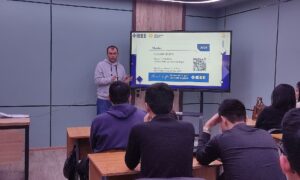In recent years, artificial intelligence (AI) has increasingly become a tool for personal expression and creativity, especially for hobbyists looking to enhance their projects. ChatGPT, an advanced language model developed by OpenAI, serves as a versatile assistant that can inspire, generate ideas, or even help create content across various hobbies, from writing and art to crafting and music.
Writing and Literature
For aspiring authors and poets, ChatGPT can act as a brainstorming partner. Users can approach the model with prompts or themes, allowing it to generate story ideas, character descriptions, or even full paragraphs to ignite the creative process. This collaboration can be particularly beneficial for overcoming writer’s block or exploring new genres.
Art and Design
When it comes to visual arts, ChatGPT can assist hobbyists by suggesting themes, colour palettes, and composition styles. Whether it’s digital art, painting, or graphic design, artists can interact with the model to receive constructive feedback or explore innovative ideas that push their creative boundaries.
Crafting and DIY Projects
For crafters, 챗GPT can serve as a source of inspiration for new projects, offering suggestions on materials and techniques that align with current hobby trends. Whether it’s knitting, woodworking, or scrapbooking, hobbyists can integrate AI-generated ideas to bring fresh perspectives to their creations.
Music and Composition
Musicians can also leverage ChatGPT by inputting lyrics or themes for their songs and receiving help with rhyming or melody suggestions. This AI-driven tool can stimulate creativity, helping hobbyists explore different musical styles or narratives in their compositions.
In summary, ChatGPT offers an exciting opportunity for hobbyists to innovate and explore their interests in novel ways. By harnessing the power of AI, enthusiasts can unlock new levels of creativity and enhance their enjoyment in various pursuits.
Education and Language Learning
Furthermore, AI has the potential to revolutionize language learning in Japan. Intelligent language learning platforms can provide personalized instruction, adapting lesson plans to individual needs and focusing on conversational skills. This technology encourages more locals to improve their English proficiency, facilitating better communication with the growing foreign population.
Addressing Challenges and Future Developments
Despite the promising advancements, there are challenges to consider. Dependence on AI for language translation raises questions about cultural sensitivity and accuracy, as literal translations may not convey the intended meaning. Continuous improvement of AI algorithms, along with human oversight, will be essential in addressing these issues.
Looking towards the future, the integration of AI in bridging language barriers in Japan holds great potential. As these technologies evolve, they will not only enhance communication but also promote greater understanding and appreciation of the diverse cultural tapestry that exists within Japan. Ultimately, AI could serve as a catalyst for a more inclusive society, where language is no longer a barrier but a bridge connecting people from all walks of life.
Cultural Context and Nuances
Understanding cultural nuances is crucial for effective communication. AI services like ChatGPT can introduce learners to idiomatic expressions, slang, and cultural references that are often overlooked in standard textbooks. This exposure not only enhances language skills but also boosts cultural comprehension, allowing Japanese speakers to navigate conversations with greater sophistication and confidence.
Customizable Learning Experiences
Every learner has unique strengths, weaknesses, and preferences. Free ChatGPT services allow students to tailor their learning experiences by selecting specific topics or areas they wish to focus on, whether it’s business English, travel phrases, or academic vocabulary. This customization ensures that learners remain engaged and motivated while cultivating the skills that are most relevant to their lives.
Overcoming Language Barriers
One of the significant challenges for Japanese speakers learning English is the fear of making mistakes. The non-judgmental nature of AI interactions lowers anxiety levels, encouraging learners to take risks in their language usage. This supportive environment fosters a growth mindset, empowering individuals to embrace mistakes as learning opportunities rather than obstacles.
Conclusion
As language learning continues to evolve with advancements in technology, free ChatGPT services are emerging as powerful tools that can significantly enhance the language acquisition process for Japanese speakers. By offering real-time interaction, tailored learning experiences, and promoting cultural understanding, these AI-driven platforms unlock new possibilities and make learning a new language a more exciting and approachable journey. Embracing these technologies can lead to not only improved language proficiency but also greater confidence in global communication.

































